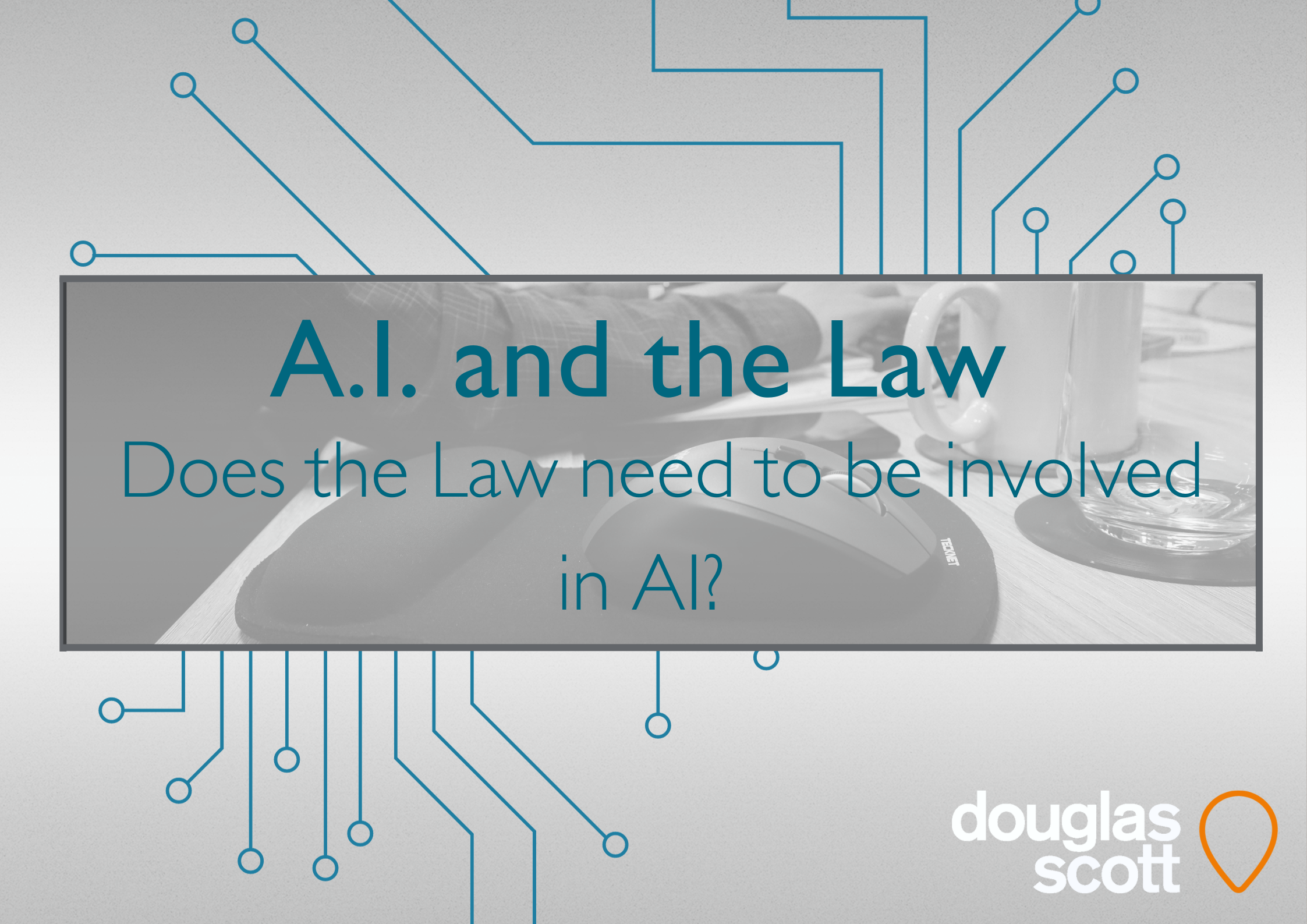Does the Law Need to be Involved in AI?
Posted in Latest News on 7 Nov 2023

It seems like it’s hard to get away from discussions of artificial intelligence. Last week saw the first conference in the United Kingdom on the subject hosted at Bletchley Park, meaning the topic is making vast and provocative headlines.
At Douglas Scott Legal Recruitment, you may have seen our interest in this field and its broader implications for the legal sector. Perhaps the most attention-grabbing headline came from Elon Musk, who said that AI will put an end to work as we know it. But do lawyers and the law need to participate in artificial intelligence regulation actively? There have been calls for it.
The government’s stance on AI is pretty non-committal at this stage: they will discuss and debate the benefits and dangers, but there is no immediate prospect of laws or regulations surrounding the technology. Prime Minster Rishi Sunak recently spoke at the Royal Society about AI and even referred to the legal sector as an area where artificial intelligence can benefit businesses. The technology is helping to clear tribunal backlogs in criminal proceedings by producing bundles and revolutionising the writing of contracts. However, other territories are being more decisive: the EU is close to drawing up a new act, which may have the same worldwide implications as their GDPR policy. At the same time, the United States government announced this week that an Executive Order would be introduced to address AI. There are also people in the UK calling for regulation, especially from the legal sector. The City of London Law Society, in particular, is looking into this problem and has set up a specialist committee. The chair, Minesh Tanna, recently wrote an article on the Law Society Gazette website and called for the law and lawyers to be part of the changes rather than reacting to them.
Of course, much discussion has ranged on whether the benefits of artificial intelligence outweigh the negatives. While some argue it can streamline cases, there are instances of how it can go wrong: a lawyer in New York, Steven Schwartz, found himself in trouble when researching for a case and finding out that most of his research, which he used AI to help him with, was made up. There are plenty of other instances, including a report about a piece of artificial intelligence that can fight minor cases like parking fines. AI is being used by people attempting to break open the old model of solicitors and law firms. However, this has been hit with several lawsuits, especially for practicing law without a license. So, robot lawyers might yet be a little way off!
The implications of artificial intelligence represent a huge existential challenge for humanity and the law significantly. The debates will continue to rage about the benefits and threats of AI, and we will continue to monitor them over the coming months here at Douglas Scott. It is clear, though, that the advances, problems, and solutions to artificial intelligence will not be easy.
Latest insight
-
Criminal solicitors – Are they the unhappiest legal sector?
18 Jun 2025 -
What motivates Employment solicitors to leave their roles?
03 Jun 2025 -
How happy are Residential Conveyancers?
29 May 2025 -
Is the Private Client market a static one?
28 May 2025 -
What can law firms do to protect mental health?
20 May 2025